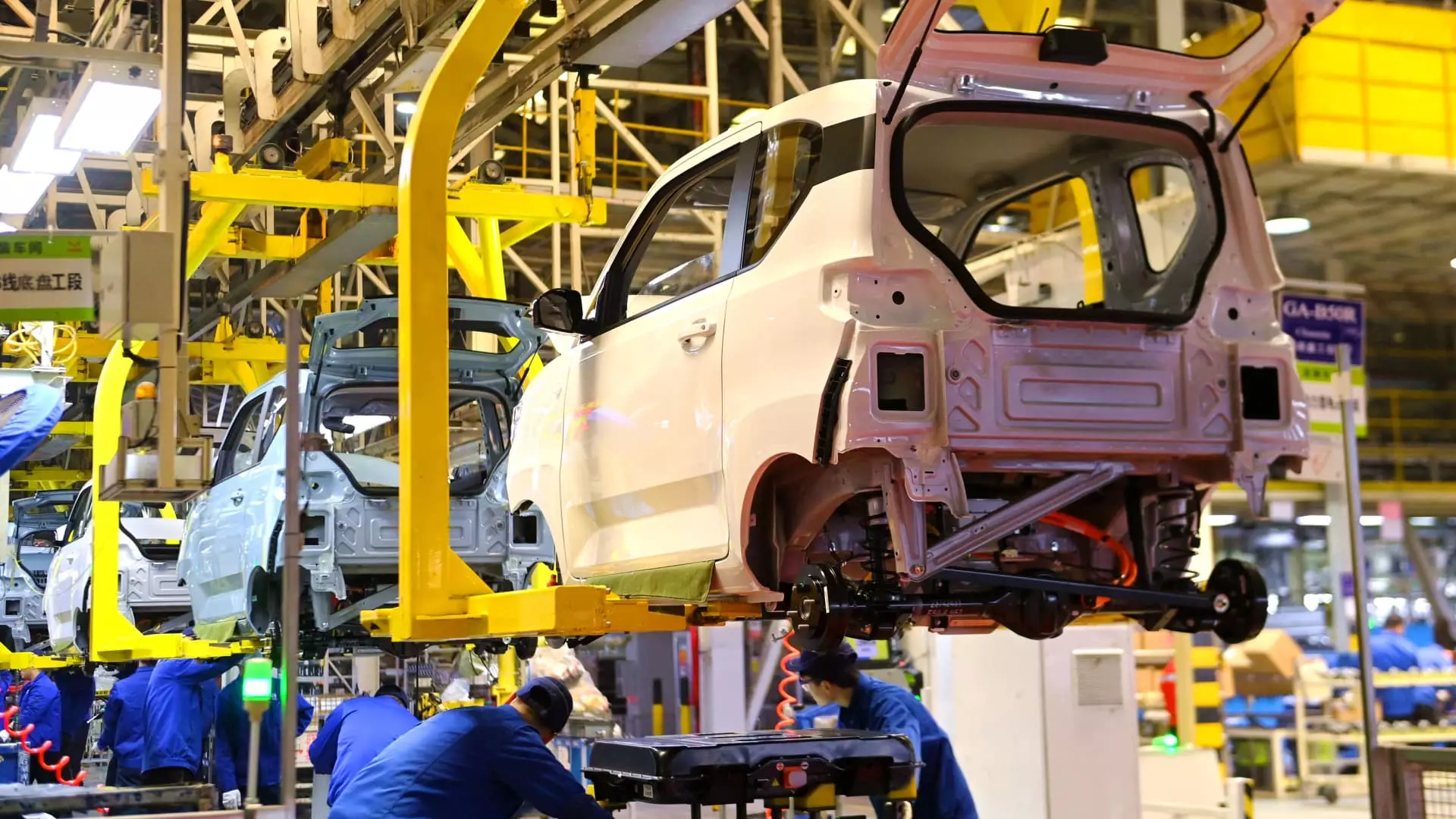China has invested a staggering $230.8 billion over a period of more than a decade to cultivate its electric car industry. This massive scale of government backing accounts for 18.8% of total electric car sales between 2009 and 2023. However, it is crucial to note that this figure has decreased from more than 40% in the years leading up to 2017, to slightly over 11% in 2023. This substantial financial support from the Chinese government reveals their commitment to becoming a leader in the electric vehicle market.
The European Union is positioning itself to impose tariffs on Chinese electric car imports due to the utilization of subsidies in their manufacturing. In addition, the United States recently announced a raise in duties on Chinese electric vehicles to 100%. This strict stance on imports highlights the concerns surrounding unfair advantages given to Chinese electric car companies. Western automakers and governments have been criticized for their lack of assertiveness and competitiveness in this rapidly evolving market.
Scott Kennedy, a trustee chair in Chinese Business and Economics at CSIS, points out that Beijing’s support for electric cars extends beyond monetary aid. Non-monetary policies have been put in place to provide an edge to domestic automakers over foreign competitors. In contrast, the United States has not created a conducive environment as China has for cultivating its electric car industry. This disparity in government support highlights the need for Western countries to reevaluate their strategies in order to keep up with the electric car revolution.
Despite the extensive government funding and market growth, Chinese electric vehicle companies have yet to witness significant profits. BYD’s net profit per car has been on the decline, as well as Tesla’s, due to an intense price war within the industry. Chinese electric car startup Nio, operating at a loss, anticipates a tough market ahead with only a handful of automakers expected to thrive. Bank of America analysts have even suggested that major U.S. automakers should shift their focus away from China due to the fierce competition.
U.S Efforts to Promote Electric Cars
The U.S. has been ramping up its efforts to support electric cars, as evidenced by the Inflation Reduction Act passed in August of 2022. This legislation allocated a substantial $370 billion for the advancement of clean technologies, including a $7,500 credit for qualifying electric car purchases. In comparison, the average Chinese support per electric car purchase stands at $4,600 in 2023, down from $13,860 in 2018. This discrepancy underscores the differing approaches adopted by China and the U.S. in fostering their respective electric car industries.
China’s investment in the electric car industry has been substantial, leading to significant advancements in the sector. However, challenges such as fierce competition, declining profits, and international trade tensions pose formidable obstacles for Chinese electric car companies. On the other hand, the U.S. is making strides in supporting electric vehicles, albeit with differing levels of government aid. As the global demand for electric cars continues to rise, it is imperative for all countries to adapt their policies and strategies to thrive in this rapidly evolving market.

